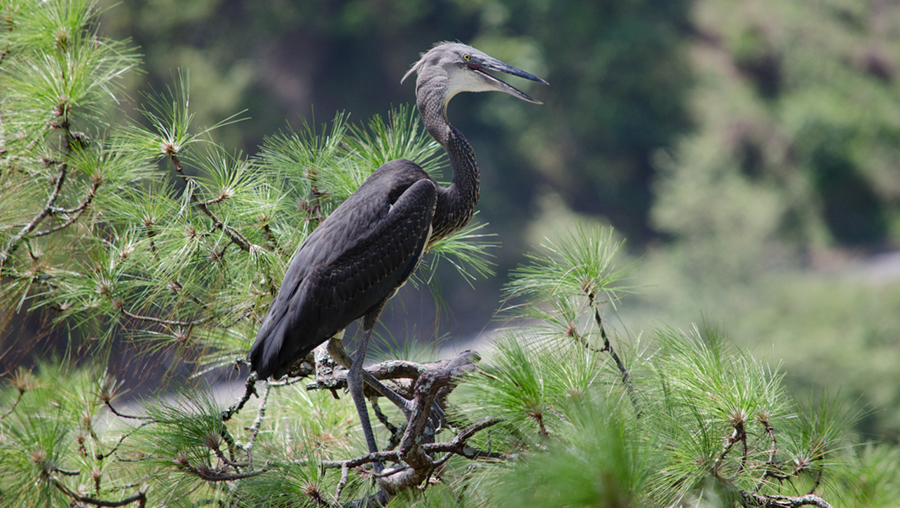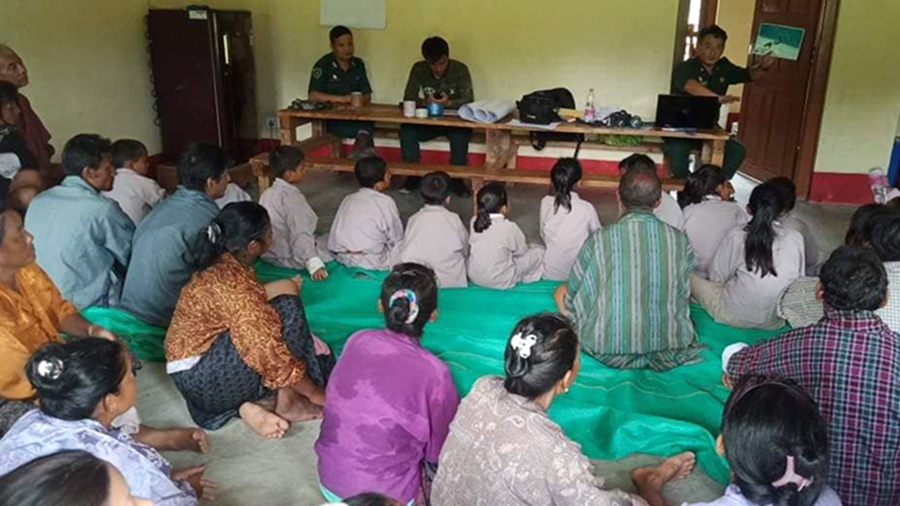
A livelihood programme for communities living within the white-bellied heron landscape in the country has trained more than 50 individuals so far. The programme began this year. It raises awareness among the communities on the significance of the white-bellied heron. Moreover, people are trained in marketing and packaging local produce to acknowledge and compensate them for their efforts to conserve the critically endangered bird. The training for the second batch of representatives will end tomorrow at Paro.
 The training is part of a five-year project called the Developing Ecosystem-based Solutions for Managing Biodiversity Landscape in Bhutan.
The training is part of a five-year project called the Developing Ecosystem-based Solutions for Managing Biodiversity Landscape in Bhutan.
35 communities are living within the white-bellied heron landscape.
The Royal Society for Protection of Nature, RSPN, which is the implementing agency, has been training individuals from Punakha, Wangdue Phodrang, Tsirang, Dagana, Trongsa, and Zhemgang districts where the white-bellied herons have been sighted.
They are the representatives from 11 women and youth groups living within the bird’s habitat who practise climate-smart agriculture.
The RSPN say that raising awareness of the significance of the birds among these communities is important, as they are directly responsible for preserving their habitat.
People are trained in marketing and packaging local produce so that this can discourage communities from illegal fishing and logging that disturb the habitat of the birds.
“Through such programmes, we reach out to them and help them understand about this critically endangered species and their habitat. Also, we want their support in saving those species through some income generating activities, whereby they engage in those activities and could bring the community development on their own,” said Karma Wangchuk, senior programme officer of the Sustainable Livelihood Division under RSPN.
The training is also aimed at making sure the local communities are directly connected to the CSI Market in Thimphu.
This is expected to increase profits by eliminating middleman to sell their produce.
“From this training, we learned that we can value-add our produce and find a reliable market. I also learned that we need to work on branding our products,” said Karna Bahadur Tamang, a participant from Tsirang.
“Their support is solely to preserve the white-bellied heron. Therefore, we have discussed and created a committee in our community. According to the RSPN, the birds need a peaceful environment to survive, so we have designated a site where they are sighted. We have stopped the collection of algae and cutting trees around the site,” said Tshering Wangmo, Tshachhuphu Tshogpa, Toewang Gewog, Punakha.
The five-year project is to protect and manage the critically endangered white-bellied heron along the Punatsangchuu and Mangdechhu basins.
There are 25 white-bellied herons in the country, which is almost 50 per cent of the entire world’s population of the species.
This project, which started in 2021, is funded by the German Federal Ministry for the Environment, Nature Conservation, Nuclear Safety and Consumer Protection as a part of the International Climate Initiative.
Singye Dema
Edited by Kipchu







